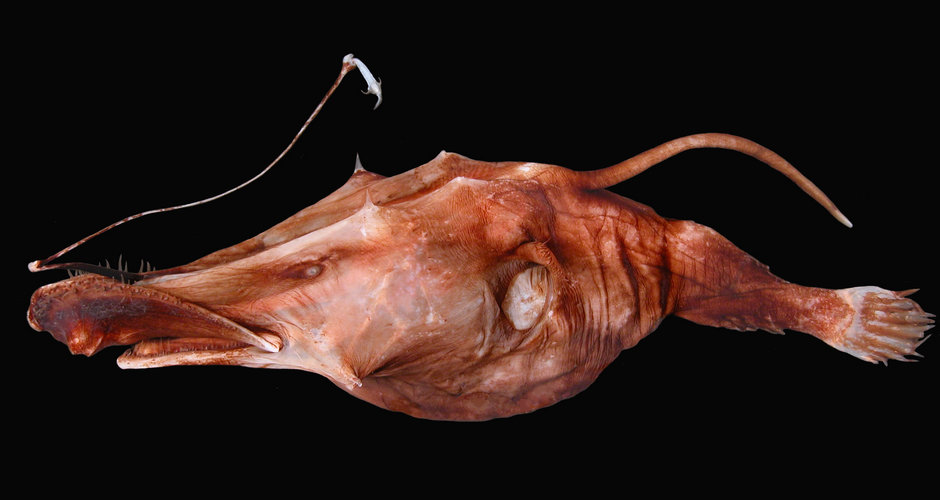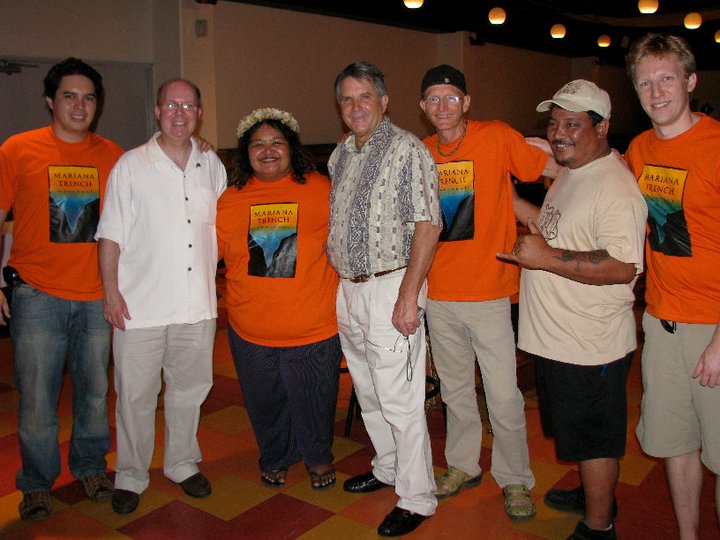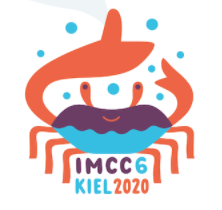Latest News
[{"id":55894,"link":"https:\/\/www.southernfriedscience.com\/twas-brillig-building-a-dungeons-dragons-campaign-for-adventurers-in-and-out-of-the-classroom\/","name":"twas-brillig-building-a-dungeons-dragons-campaign-for-adventurers-in-and-out-of-the-classroom","thumbnail":{"url":"https:\/\/www.southernfriedscience.com\/wp-content\/uploads\/2024\/12\/Act-2-1.png","alt":""},"title":"'Twas brillig... building a Dungeons & Dragons campaign for adventurers in and out of the classroom.","author":{"name":"Andrew Thaler","link":"https:\/\/www.southernfriedscience.com\/author\/southern-fried-scientist\/"},"date":"Dec 17, 2024","dateGMT":"2024-12-18 02:25:59","modifiedDate":"2024-12-17 21:28:33","modifiedDateGMT":"2024-12-18 02:28:33","commentCount":"0","commentStatus":"closed","categories":{"coma":"<a href=\"https:\/\/www.southernfriedscience.com\/category\/education\/\" rel=\"category tag\">Education<\/a>, <a href=\"https:\/\/www.southernfriedscience.com\/category\/featured\/\" rel=\"category tag\">Featured<\/a>","space":"<a href=\"https:\/\/www.southernfriedscience.com\/category\/education\/\" rel=\"category tag\">Education<\/a> <a href=\"https:\/\/www.southernfriedscience.com\/category\/featured\/\" rel=\"category tag\">Featured<\/a>"},"taxonomies":{"post_tag":"<a href='https:\/\/www.southernfriedscience.com\/tag\/classroom\/' rel='post_tag'>classroom<\/a><a href='https:\/\/www.southernfriedscience.com\/tag\/dungeons-and-dragons\/' rel='post_tag'>Dungeons and dragons<\/a><a href='https:\/\/www.southernfriedscience.com\/tag\/experiential-education\/' rel='post_tag'>experiential education<\/a><a href='https:\/\/www.southernfriedscience.com\/tag\/jabberwock\/' rel='post_tag'>Jabberwock<\/a><a href='https:\/\/www.southernfriedscience.com\/tag\/succession\/' rel='post_tag'>succession<\/a>"},"readTime":{"min":6,"sec":35},"status":"publish","excerpt":""},{"id":55883,"link":"https:\/\/www.southernfriedscience.com\/hunt-the-jabberwock-defend-the-warren-save-the-forest-a-dd-5e-adventure-for-environmental-educators\/","name":"hunt-the-jabberwock-defend-the-warren-save-the-forest-a-dd-5e-adventure-for-environmental-educators","thumbnail":{"url":"https:\/\/www.southernfriedscience.com\/wp-content\/uploads\/2024\/12\/Page-1.png","alt":""},"title":"Hunt the Jabberwock, Defend the Warren, Save the Forest: a D&D 5e Adventure for Environmental Educators","author":{"name":"Andrew Thaler","link":"https:\/\/www.southernfriedscience.com\/author\/southern-fried-scientist\/"},"date":"Dec 13, 2024","dateGMT":"2024-12-13 20:38:02","modifiedDate":"2024-12-17 15:35:52","modifiedDateGMT":"2024-12-17 20:35:52","commentCount":"0","commentStatus":"open","categories":{"coma":"<a href=\"https:\/\/www.southernfriedscience.com\/category\/education\/\" rel=\"category tag\">Education<\/a>, <a href=\"https:\/\/www.southernfriedscience.com\/category\/featured\/\" rel=\"category tag\">Featured<\/a>","space":"<a href=\"https:\/\/www.southernfriedscience.com\/category\/education\/\" rel=\"category tag\">Education<\/a> <a href=\"https:\/\/www.southernfriedscience.com\/category\/featured\/\" rel=\"category tag\">Featured<\/a>"},"taxonomies":{"post_tag":"<a href='https:\/\/www.southernfriedscience.com\/tag\/dams\/' rel='post_tag'>dams<\/a><a href='https:\/\/www.southernfriedscience.com\/tag\/dungeons-and-dragons\/' rel='post_tag'>Dungeons and dragons<\/a><a href='https:\/\/www.southernfriedscience.com\/tag\/ecology\/' rel='post_tag'>ecology<\/a><a href='https:\/\/www.southernfriedscience.com\/tag\/forest\/' rel='post_tag'>forest<\/a><a href='https:\/\/www.southernfriedscience.com\/tag\/jabberwock\/' rel='post_tag'>Jabberwock<\/a><a href='https:\/\/www.southernfriedscience.com\/tag\/lesson-plans\/' rel='post_tag'>Lesson PLans<\/a>"},"readTime":{"min":1,"sec":41},"status":"publish","excerpt":""},{"id":55855,"link":"https:\/\/www.southernfriedscience.com\/this-rum-protects-the-ocean-the-worlds-first-conservation-distillery-is-open-for-business\/","name":"this-rum-protects-the-ocean-the-worlds-first-conservation-distillery-is-open-for-business","thumbnail":{"url":"https:\/\/www.southernfriedscience.com\/wp-content\/uploads\/2024\/11\/465662061_543266475233954_5158712234421682914_n.jpg","alt":""},"title":"This Rum Protects the Ocean: the world's first conservation distillery is open for business.","author":{"name":"Andrew Thaler","link":"https:\/\/www.southernfriedscience.com\/author\/southern-fried-scientist\/"},"date":"Nov 15, 2024","dateGMT":"2024-11-15 16:54:22","modifiedDate":"2024-11-15 12:16:00","modifiedDateGMT":"2024-11-15 17:16:00","commentCount":"0","commentStatus":"closed","categories":{"coma":"<a href=\"https:\/\/www.southernfriedscience.com\/category\/conservation\/\" rel=\"category tag\">Conservation<\/a>, <a href=\"https:\/\/www.southernfriedscience.com\/category\/featured\/\" rel=\"category tag\">Featured<\/a>","space":"<a href=\"https:\/\/www.southernfriedscience.com\/category\/conservation\/\" rel=\"category tag\">Conservation<\/a> <a href=\"https:\/\/www.southernfriedscience.com\/category\/featured\/\" rel=\"category tag\">Featured<\/a>"},"taxonomies":{"post_tag":"<a href='https:\/\/www.southernfriedscience.com\/tag\/rum\/' rel='post_tag'>Rum<\/a><a href='https:\/\/www.southernfriedscience.com\/tag\/sea-turtles\/' rel='post_tag'>sea turtles<\/a><a href='https:\/\/www.southernfriedscience.com\/tag\/sperm-whales\/' rel='post_tag'>sperm whales<\/a>"},"readTime":{"min":1,"sec":29},"status":"publish","excerpt":""},{"id":55829,"link":"https:\/\/www.southernfriedscience.com\/giant-tube-worms-dwell-in-the-deep-places-beneath-the-ocean-floor\/","name":"giant-tube-worms-dwell-in-the-deep-places-beneath-the-ocean-floor","thumbnail":{"url":"https:\/\/www.southernfriedscience.com\/wp-content\/uploads\/2024\/10\/BeneathTheVents.jpg","alt":""},"title":"Giant tube worms dwell in the deep places beneath the ocean floor.","author":{"name":"Andrew Thaler","link":"https:\/\/www.southernfriedscience.com\/author\/southern-fried-scientist\/"},"date":"Oct 18, 2024","dateGMT":"2024-10-18 16:44:40","modifiedDate":"2024-10-30 09:32:58","modifiedDateGMT":"2024-10-30 13:32:58","commentCount":"0","commentStatus":"closed","categories":{"coma":"<a href=\"https:\/\/www.southernfriedscience.com\/category\/featured\/\" rel=\"category tag\">Featured<\/a>, <a href=\"https:\/\/www.southernfriedscience.com\/category\/science\/\" rel=\"category tag\">Science<\/a>","space":"<a href=\"https:\/\/www.southernfriedscience.com\/category\/featured\/\" rel=\"category tag\">Featured<\/a> <a href=\"https:\/\/www.southernfriedscience.com\/category\/science\/\" rel=\"category tag\">Science<\/a>"},"taxonomies":{"post_tag":"<a href='https:\/\/www.southernfriedscience.com\/tag\/art\/' rel='post_tag'>art<\/a><a href='https:\/\/www.southernfriedscience.com\/tag\/deep-biosphere\/' rel='post_tag'>deep biosphere<\/a><a href='https:\/\/www.southernfriedscience.com\/tag\/hydrothermal-vents\/' rel='post_tag'>hydrothermal vents<\/a><a href='https:\/\/www.southernfriedscience.com\/tag\/microbes\/' rel='post_tag'>Microbes<\/a><a href='https:\/\/www.southernfriedscience.com\/tag\/riftia-pachyptila\/' rel='post_tag'>Riftia pachyptila<\/a><a href='https:\/\/www.southernfriedscience.com\/tag\/tube-worms\/' rel='post_tag'>tube worms<\/a>"},"readTime":{"min":4,"sec":32},"status":"publish","excerpt":""},{"id":55821,"link":"https:\/\/www.southernfriedscience.com\/6-ways-to-support-the-america-the-beautiful-for-all-coalition\/","name":"6-ways-to-support-the-america-the-beautiful-for-all-coalition","thumbnail":{"url":"https:\/\/www.southernfriedscience.com\/wp-content\/uploads\/2024\/10\/WhatsApp-Image-2024-10-07-at-10.31.41-AM.jpeg","alt":"natives from puerto rico and mariana islands pose for a photo"},"title":"6 Ways to Support the America the Beautiful for All Coalition","author":{"name":"Angelo Villagomez","link":"https:\/\/www.southernfriedscience.com\/author\/buckyvillagomez\/"},"date":"Oct 7, 2024","dateGMT":"2024-10-07 14:42:11","modifiedDate":"2024-10-09 08:47:34","modifiedDateGMT":"2024-10-09 12:47:34","commentCount":"0","commentStatus":"closed","categories":{"coma":"<a href=\"https:\/\/www.southernfriedscience.com\/category\/conservation\/\" rel=\"category tag\">Conservation<\/a>, <a href=\"https:\/\/www.southernfriedscience.com\/category\/featured\/\" rel=\"category tag\">Featured<\/a>, <a href=\"https:\/\/www.southernfriedscience.com\/category\/policy\/\" rel=\"category tag\">Policy<\/a>","space":"<a href=\"https:\/\/www.southernfriedscience.com\/category\/conservation\/\" rel=\"category tag\">Conservation<\/a> <a href=\"https:\/\/www.southernfriedscience.com\/category\/featured\/\" rel=\"category tag\">Featured<\/a> <a href=\"https:\/\/www.southernfriedscience.com\/category\/policy\/\" rel=\"category tag\">Policy<\/a>"},"taxonomies":{"post_tag":""},"readTime":{"min":4,"sec":22},"status":"publish","excerpt":""},{"id":55803,"link":"https:\/\/www.southernfriedscience.com\/comparing-the-openctd-to-a-ysi-castaway\/","name":"comparing-the-openctd-to-a-ysi-castaway","thumbnail":{"url":"https:\/\/www.southernfriedscience.com\/wp-content\/uploads\/2024\/09\/PXL_20240905_162511148-scaled.jpg","alt":""},"title":"Comparing the OpenCTD to a YSI Castaway","author":{"name":"Andrew Thaler","link":"https:\/\/www.southernfriedscience.com\/author\/southern-fried-scientist\/"},"date":"Sep 21, 2024","dateGMT":"2024-09-21 19:11:27","modifiedDate":"2024-09-21 15:16:44","modifiedDateGMT":"2024-09-21 19:16:44","commentCount":"0","commentStatus":"closed","categories":{"coma":"<a href=\"https:\/\/www.southernfriedscience.com\/category\/education\/\" rel=\"category tag\">Education<\/a>, <a href=\"https:\/\/www.southernfriedscience.com\/category\/featured\/\" rel=\"category tag\">Featured<\/a>, <a href=\"https:\/\/www.southernfriedscience.com\/category\/oceanography-for-everyone\/\" rel=\"category tag\">Oceanography for Everyone<\/a>","space":"<a href=\"https:\/\/www.southernfriedscience.com\/category\/education\/\" rel=\"category tag\">Education<\/a> <a href=\"https:\/\/www.southernfriedscience.com\/category\/featured\/\" rel=\"category tag\">Featured<\/a> <a href=\"https:\/\/www.southernfriedscience.com\/category\/oceanography-for-everyone\/\" rel=\"category tag\">Oceanography for Everyone<\/a>"},"taxonomies":{"post_tag":"<a href='https:\/\/www.southernfriedscience.com\/tag\/openctd\/' rel='post_tag'>OpenCTD<\/a>"},"readTime":{"min":2,"sec":3},"status":"publish","excerpt":""}]



